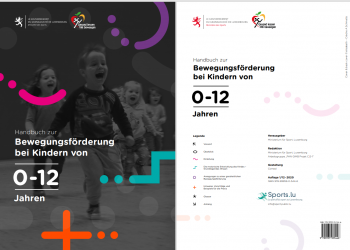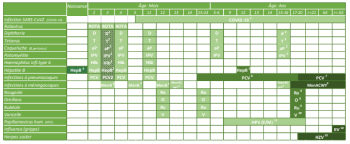Protection des enfants en Ukraine
En tant que membre de la EAP, la SLP soutient la position de l'EAP sur la protection des enfants en Ukraine et la nécessité d'arrêter la guerre.CHILDREN‘S DOCTORS AGAINST THE WAR: CALL FOR ACTION NOW Brussels, March 10, 2022
Two weeks have passed since the beginning of the invasion of Ukraine. Despite 141 countries voting in the UN General Assembly for the Russian army to stop fighting and withdraw from another sovereign country, Ukraine, the fighting is increasingly bloody and brutal. The war has led to 2.2 million people including about 1 million children fleeing from their homes and becoming refugees. There are 71 children confirmed killed including 18 months old infant in Mariupol. Most of child fatalities result from attacks from the air or with rockets. We stand together with Ukrainian children, families and the heroic medical and nursing staff calling for the action now:7
- we ask the governments of our countries to do more to ensure the safety of children in Ukraine, to stop the war and first of all to stop rockets and bombs attacks on civil infrastructure of Ukraine;
- we ask Russian paediatricians and especially leaders of paediatric organizations in Russia to express clear and loud position against the war in Ukraine and to do everything in their power to stop the war;
- we confirm once again solidarity and professional support for children’s doctors and nurses in Ukraine.
Our voices are stronger than rockets and bombs! Slava Ukraine!
Prof. Arunas Valiulis, Vilnius, Lithuania Prof. Andrew Bush, London, UK Prof. Bruce K Rubin, Richmond, USA Prof. Vaidotas Urbonas, Vilnius, Lithuania, on behalf of Lithuanian Paediatric Societ Prof. Ilze Groppe, Riga, Latvia, on behalf of Latvian Paediatric Society Dr. Chris Pruunsild, Tartu, Estonia, on behalf of Estonian Paediatric Association Prof. Jarosław Peregud-Pogorzelski, Szczecin, Poland, on behalf of the Polish Society of Paediatrics Dr. Lars Gelander, Borås, Sweden, on behalf of Swedish Paediatric Society Prof. Ketil Størdal, Oslo, Norway, on behalf of Norwegian Paediatric Society Prof. Risto Lapatto, Helsinki, Finland, on behalf of Paediatric Section of Finnish Medical Association Dr. Klaus Birkelund Johansen, Aarhus, Denmark, on behalf of Danish Pediatric Society Dr. Corinne Wyder, Burgdorf, Switzerland, on behalf of Swiss Society of Paediatrics Dr. Karoly Illy, Zwolle, the Netherlands, on behalf of Dutch Paediatric Society Prof. Annamaria Staiano, Naples, on behalf of Italian Pediatric Society Dr. Luis Sánchez Santos, Santiago, Spain, Spain on behalf of Spanish Paediatric Association Prof. Karin Geitmann, Hagen, Germany, on behalf of Deutsche Berufsverband der Kinder- und Jugendärzte Prof. Delane Shingadia, London, UK, on behalf of European Society of Pediatric Infectious Diseases (ESPID) Prof. Marielle Pijnenburg, Rotterdam, the Netherlands, on behalf of Paediatric Assembly of European Respiratory Society (ERS) Dr. Shimon Barak, Jerusalem, Israel, on behalf of Israeli Ambulatory Pediatric Association and European Confederation of Primary Care Paediatricians (ECPCP) Dr. Hans Jurgen Dornbusch, Vienna, Austria, on behalf of Austrian National Society for Paediatrics and Adolescent Medicine Prof. Yıldız Camcıoğlu, Ankara, Turkey, on behalf of Turkish National Pediatric Society Dr. Aida Mujkic, Zagreb, Croatia, on behalf of Croatian Pediatric Society Prof. Leonid Dubey, Lviv, Ukraine, on behalf of Ukrainian Academy of Paediatrics (UAP-SMS) Dr. Mark Buttigieg, Gozo, Malta, on behalf of Maltese Paediatric Association Prof. Yvan Vanderplas, Brussels, Belgium, on behalf of Belgian Society of Pediatrics Prof. Jonathan D. Klein, Chicago, USA, on behalf of International Association for Adolescent Health Prof. Marina Mamenko, Kyiv, Ukraine, on behalf of Ukrainian Academy of Paediatrics (UAPs) Dr. Sofia Sani, Athens, Greece, on behalf of Union of Private Practice Paediatricians of Attica Prof. Ninel Revenco, Chisinau, Republic of Moldova, on behalf of Moldavian Pediatric Society Dr. Serge Allard, Luxembourg, on behalf of Société Luxembourgeoise de Pédiatrie Prof. Maia Chkhaidze, Tbilisi, Georgia, on behalf of Georgian Academy of Pediatrics Assoc. Prof. Nebojša Kavarič, Podgorica, Montenegro, on behalf of Association for Preventive Pediatrics Dr. Elizabeth Whittaker, London, UK, on behalf of British Paediatric Allergy Immunology & Infection Group Prof. Ivane Chkhaidze, Tbilisi, Georgia, on behalf of Pediatric Section of Georgian Respiratory Association Prof. Justine Bacchetta, Lyon, France, on behalf of Société Francophone de Néphrologie Pédiatrique Dr. Stefania Manetti, Sant'Agnello, Italy, on behalf of Associazione Culturale Pediatri Prof. Doina Anca Pleșca, Bucharest, Romania, on behalf of Romanian Pediatric Society Dr. Dolors Canadell, Barcelona, Spain on behalf of Spanish Paediatric Foundation Prof. Tom Stiris, Oslo, Norway Prof. Adamos Hadjipanayis, Nicosia, Cyprus Prof. Artur Mazur, Rzeszów, Poland Dr. Łukasz Dębiński, Warsaw, Poland Dr. Naveed Thacker, Delhi, India Dr. Juan José Díaz, Oviedo, Spain Dr. Stefano del Torso, Padua, Italy, on behalf of ChildCare WorldWide Prof. Ann De Guchtenaere, Gent, Belgium Prof. Zachi Grossman, Tel Aviv, Israel Prof. Jonathan D. Klein, Chicago, USA, on behalf of International Association for Adolescent Health Prof. Thomas Ferkol, Washington, USA Prof. Eitan Kerem, Jerusalem, Israel Dr. Ivan Bambir, Zagreb, Croatia Prof. Liviana Da Dalt, Padova, Italy Prof. Thomas F Scanlin, Philadelphia, USA Prof. Miles Weinberger, San Diego, USA Prof. Peter Greally, Dublin, Ireland Assoc. Prof. Javier Korta Murua, Donostia, Spain Prof. Viner Russell, London, UK Prof. Koray Boduroglu, Ankara, Turkey Prof. Michael Fayon, Bordeaux, France Prof. Michael Newhouse, Hamilton, Canada Prof. Giovanni Rossi, Genova, Italy Prof. Tony Kriseman, St. Petersburg, Florida, USA Prof. Angelo Giardino, Salt Lake City, USA Prof. Alan Brody, Cincinnati, USA Prof. Johan Carl, Cleveland, USA Assist. Prof. Daiva Parakininkas, Milwaukee, USA Prof. Olafur Thorvaldsson, Reykjavik, Iceland Prof. Petr Pohunek, Prague, Czech Republic Prof. Beth Harkness, Washington, USA Assoc. Prof. Paul Boesch, Rochester, USA Dr. Martin Samuels, London & Stoke-on-Trent, UK Dr. Ana Ferrari, Roma, Italy Prof. Manuel Soto-Martinez, San Chose, Costa Rica Prof. Hermione Lyall, London, UK Prof. Ruud Nijman, London, UK Dr. Claude Billeaud, Bordeaux, France Prof. Joe Brierley, London, UK, on behalf of ECHO Group of Children’s Hospitals Prof. Andrew Colins, Miami, USA Prof. Renato Stein, Porto Alegre, Brasil Prof. Eugenio Baraldi, Padova, Italy Dr. Harry Opsimos, Athens, Greece Dr. Gabriela Kubatova, Prague, Czech Republic Prof. Rob Ross Russell, Cambridge, UK Prof. Julije Meštrović, Split, Croatia Dr. Nataša Toplak, Ljubljana, Slovenia Prof. Oana Marginean, Tirgu-Mures, Romania Prof Olivia Boyer, Paris, France Dr. Thomas Siebler, Luxembourg Dr. Laura Reali, Roma, Italy Dr. Elianne Vrijlandt, Groningen, the Netherlands Assist. Prof. Jernej Završnik, Maribor, Slovenia Assoc. Prof. Olga Cîrstea, Chisinau, Republic of Moldo Prof. Pier Giorgio Gamba, Padova, Italy Prof. Mehmet Vural, Istanbul, Turkey Dr. Paolo Nardini, Roma, Italy Prof. Antonio Ruggiero, Roma, Italy Dr. Alex Rykov, Kyiv, Ukraine Prof. Svitlana Doan, Kyiv, Ukraine Prof. Oleksandr Katilov, Vinnitsa, Ukraine Prof. Valeriy Pokhylko, Poltava, Ukraine Dr. Ivanna Romankevych, Kyiv, Ukraine

